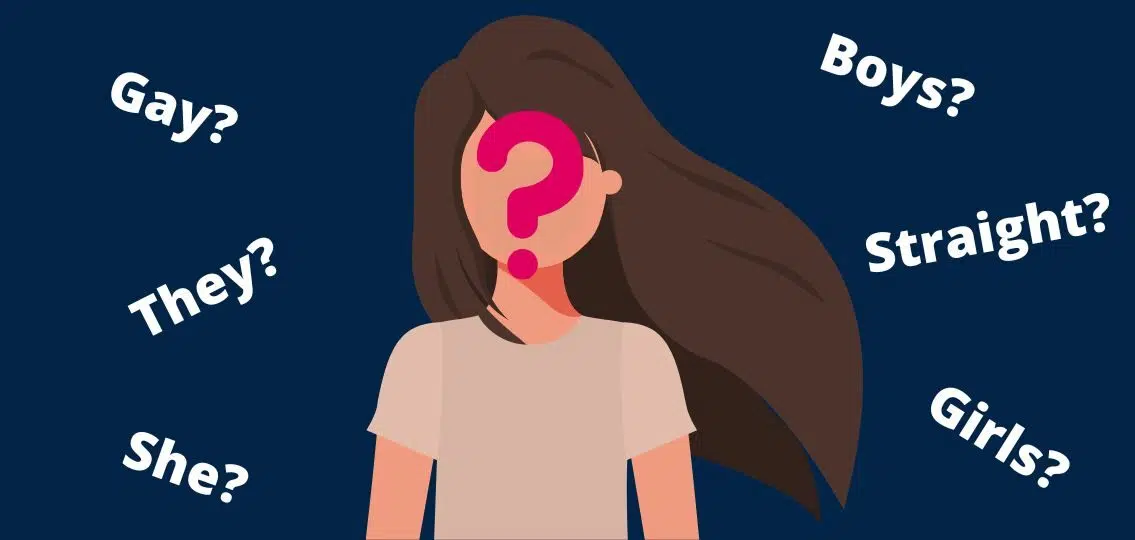fI’m a closeted queer teen living in a conservative country, raised in a family with mostly conservative views. My society tolerates LGBTQIA members only when they’re funny or beneficial; otherwise, they’re not respected, and acts of internalized homophobia still exist.
Before the pandemic, I always pushed away from the idea of liking the same gender, though I still unconsciously acted sweet towards girls I admired. I only came to terms with my sexuality when I was exposed to an environment full of accepting queer people last year.
My closeted friends and I talked about how we overcame our internalized homophobia and came to accept our sexual orientation, and how it would’ve been so much easier for us to embrace our sexualities if our family or environment acted differently.
If you notice your teen is confused about, questioning, or exploring their sexuality, here are some of our tips to help them feel comfortable talking about it, without making things awkward for both of you.
Tips to help your queer or questioning teen accept their sexuality:
1) Do not tolerate homophobia.
If you hear someone make a homophobic comment—even if it’s a relative, close friend, or your spouse—please correct them nicely and subtly. Why? Because your child looks up to you. If you’re unsupportive of the LGBTQIA community, it will be harder for your child to accept an important part of their identity. But if your questioning teen hears you say something as simple as, “Hey, that’s not nice. Let them be, as long as they’re happy,” this comment signals that they’re in a safe and welcoming environment and that you won’t judge them just because they like the same gender.
2) Include other genders when you ask about crushes.
A lot of parents ask their teens, “Do you have a girlfriend/boyfriend?” Add to that conversation by including other genders in your question. Be subtle and relaxed with your questions and show that you’re open to their answers, whatever they may be.
For example, you notice that your daughter is quite confused about their sexuality these past few months, or you notice that they sometimes hint that they’re into the same gender. Your conversation might go something like this:
Parent: “So, is there someone you like right now?”
(Teens almost always deny this. So, expect “not really” as the most obvious answer.)
Parent: “You really don’t have a boyfriend?”
(Even if they’re not interested in men, they’ll still say no—it’s a valid and honest answer.)
Parent: “How about a girlfriend?” Please say this in the most natural way possible!
A questioning teen will feel more encouraged to figure out their sexuality when they hear your open-minded questions, and a queer teen or a teen who’s exploring their sexuality will slowly feel safe to confide in you. This technique may seem subtle or simple, but it’s a big deal for gay teens. We’re glad when our parents show us they’re not judgmental when it comes to the LGBTQIA community.
3) Learn about LGBTQIA experiences, and mention them.
To understand what your teen might be going through, you should first learn about the diversity of gender identity, sexual orientation, romantic orientation, etc. You don’t have to fully know what every term is about, but it’s helpful if you are at least familiar with them. During conversations, you can mention what you’ve learned.
If your teen knows something about a particular topic, encourage them to tell you more about it by asking what it is. Or if they don’t know, you could share what you have researched.
Learning about and showing you’re accepting of diversity helps build a safe community for your teen; plus, by talking about this together, you’re spending quality time with them and forging stronger parent-child bonds.
4) Do not force them to come out.
Most LGBTQIA members are closeted. Some might just not be comfortable with the idea of “coming out,” since heterosexual people don’t do that. Your teen may share this belief, so do not pressure them!
Now that you have shown them that they’re in a safe, accepting environment, they might just bring home a significant other one day. No matter what kind of gendered relationship they’re in, make sure to treat them normally. Teach them about healthy relationship dynamics and values, and ask about getting married or having babies one day.
Always remember: People love who they love. Love has no gender. Love wins.




